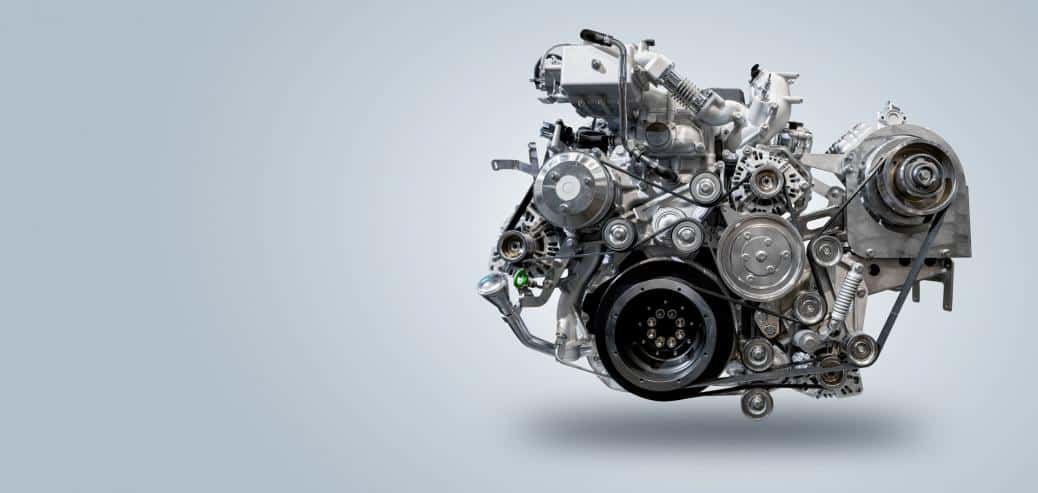0 items - £0.00
No products in the basket.

A diesel engine is a unique internal combustion engine that works by burning fuel inside the cylinders. They differ from gasoline engines, so instead of using electric current or spark plugs to ignite their mixture, they use high compression for the ignition. The difference comes with many benefits, such as lower emissions, fuel economy, and less frequent and cheaper maintenance.
Diesel engine vehicles usually perform demanding and rough work because they have elevated torque power. These tasks include pulling, pushing, digging, and carrying.
To maintain the productivity of your diesel engine, ensure it gets checked by professionals once every year. It’s also essential to be aware of the daily maintenance tips to extend the service life of your engine.
Here are some tips for keeping your diesel engine in good shape:
Diesel engines have two filters; the air filter and the oil filter. Depending on the climate and environment, both should be checked and replaced regularly. Air filters help filter engine’s air to ensure it’s free from dust and other impurities that may clog your engine. Therefore, it’s essential to ensure that your air filters remain clean to enhance effectiveness.
A dirty air filter chokes your engine, increasing fuel consumption to remain productive. Specialists suggest replacing the air filters every 12,000 miles or having it checked if you notice reduced power, acceleration, or increased engine issues.
You should also check your oil filters frequently to ensure they’re clean and debris-free. Filthy oil filters eventually clog up your engine, making it lose power and eventually knock out, and won’t run unless you clean out everything and replace it with new parts. While filters may be small components, they’re essential in keeping your engine in good working condition.
You may discover more tips here on how to keep your filters in good condition.
Typically, diesel engines last a longer lifespan than gasoline engines. Therefore, throughout their lifespan, they greatly benefit from regular cleaning. After all, the rough work diesel engines perform, dirt, dust, and other debris have the chance to accumulate and collect in the engine.
When all this dirt collects in the engine, it decreases fuel efficiency and engine performance, shortening the engine’s service life. Diesel engines require clean air, fuel, and oil for maximum efficiency. Regular cleaning of your engine also helps discover potential oil leaks.
Additionally, if you live in areas with harsh winters, your engine parts may wear down quicker due to road salt, which intensifies rust and corrosion. However, regular cleaning may help prevent rust and corrosion.
Generally, proper cleaning is a simple but essential way to maintain your diesel engine. If you’re unsure how to do it, refer to the manual before starting cleaning.
The easiest way to damage your engine is failure to change the oil. Oil should be changed every three months or after every 5000 miles depending on how the engine is used. Not changing the oil causes a lot of wear and tear on the engine. Diesel engines don’t usually suffer from low oil since you can decide to add two quarters before the next oil change date is due.
An engine radiator keeps the engine cool by transferring heat from the engine to the air. It sends coolant throughout the engine to collect the heat. The hot coolant cycles back to the radiator, releasing the heat into the air. Then the coolant travels back to the engine, repeating the process.
Diesel engines run hotter than gasoline engines, meaning that radiators in diesel engines are subjected to high heat, which might lead to overheating. If not addressed on time, the overheating can lead to warped engine components like gasket seals and cylinders, leading to engine failure.
Proper radiator maintenance such as radiator exchange or adequate coolant can be a great way to prevent overheating in diesel engines. Radiator servicing can be done using a specialized fluid pumped through the cooling system and the radiator, removing rust and impurities in the antifreeze and topping off with new antifreeze to help it cool efficiently.
Conclusion
Diesel engines are more difficult to maintain than gasoline engines. But following the above maintenance tips will ensure your diesel engine stays in an excellent running condition. Additionally, there are other tips you shouldn’t ignore, including using the right fuel for your engine, regular check-ups on the engine’s fluid levels, and, more importantly, visiting diesel engine maintenance professionals for diagnostics.

Development Office, Unit 211 East London Works, London, E1 1DU
© 2017 3Dom Wraps | Terms & Conditions | Privacy
Created with love @ 